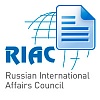Publications Review 21.08.2014. Israeli-Palestinian conflict, Iran, ISIL, BRICS Bank
In
Login if you are already registered
(no votes) |
(0 votes) |
In this digest you will find a review of recent publications on the Israeli-Palestinian conflict, nuclear negotiations with Iran, the occupation of Iraqi territories by the Islamic State of Iraq and Levant, and the creation of the BRICS Bank.
The beginning of July 2014 has been marked by a serious escalation of the Israeli-Palestinian conflict due to the launch of an Israeli Defense Forces punitive operation in the HAMAS-governed Gaza Strip with the stated aim of stopping Gazan militias’ rocket attacks against Israeli cities. Since the start of the operation there have been a lot of debates concerning the possible outcome of the conflict. Here are some analytical essays and publications which will help you better understand the present situation on the Israeli-Palestinian border.
Israel has gone beyond legitimate self-defense in its war against HAMAS. This is a point of view expressed by the Israeli scholar Daniel Levy in his interview to Deutche Welle. He believes that Israel’s response to Gaza attacks has been disproportionate and that Israel could have avoided a huge number of civilian casualties in Gaza. As for the ways of conflict resolution, Levy believes that it is impossible to solve the Palestinian issue militarily and that it is necessary for Israel to ease the closure of Gaza in order to make HAMAS agree to a ceasefire. Find out more about Daniel Levy’s analysis of the conflict here.
.jpg) A similar point of view concerning the Israeli-Palestinian conflict belongs to Nick Witney, expert of the European Council of foreign Relations. The expert considers that Israel’s authorities bear the main responsibility for the new unleash of hostilities in the Middle East and calls on European and American leaders to involve HAMAS into negotiations by making certain concessions to the Palestinian group.
A similar point of view concerning the Israeli-Palestinian conflict belongs to Nick Witney, expert of the European Council of foreign Relations. The expert considers that Israel’s authorities bear the main responsibility for the new unleash of hostilities in the Middle East and calls on European and American leaders to involve HAMAS into negotiations by making certain concessions to the Palestinian group.
 Here is an interesting publication prepared by the International Crisis Group which gives an overview of HAMAS’positions in Palestine and of its chances to meet the aspirations of the Palestinian people and force Israel to satisfy at least a part of its demands.
Here is an interesting publication prepared by the International Crisis Group which gives an overview of HAMAS’positions in Palestine and of its chances to meet the aspirations of the Palestinian people and force Israel to satisfy at least a part of its demands.
After nearly three weeks of round-the-clock negotiations to achieve a comprehensive nuclear agreement with Iran, the United States, joined by its major allies Britain, France and Germany, as well as Russia and China — the P5+1 — chose to extend the current agreement for four months and continue negotiations. However, there are concerns that the ongoing conflict in Gaza will preclude the successful outcome of the negotiations on Iran's nuclear programmer. Here is a recent publication of RAND corporation which speculates on the correlation between nuclear talks and the Israeli-Palestinian conflict.
At the beginning of summer 2014 a part of the Iraqi territory and Sunni-majority areas of Syria were occupied by members of the jihadist group "Islamic State of Iraq and Levant". On 29 June the group proclaimed the creation of the caliphate (an Islamic state) on the occupied territories, which aroused very serious concerns in the international community and even made the USA and a number of its European allies authorize air strikes on Iraq. The article "Taking Iraq apart" published in Monde diplomatique explores the reasons for the quick victory of the extremist religious group in Iraq and describes the current state of affairs in the country. Find out more information here.
In mid-July 2014 the countries of BRICS announced the establishment of a New Development Bank - nicknamed the "BRICS Bank"- the institution which is supposed to become an alternative to the US-dominated World Bank and International Monetary Fund that have proved to be rather ineffective when dealing with the global economic crisis. The creation of the new bank has become a source of a heated dispute in the international community. What are the reasons for the creation of a new bank? Will it bring a serious change to the mechanisms of international economic governance? Find the answer to these questions in the material presented by the Center for Strategic and International Studies.
RIAC editing team gives special thanks to Anna Dvoryanchikova, author of this digest.
(no votes) |
(0 votes) |








